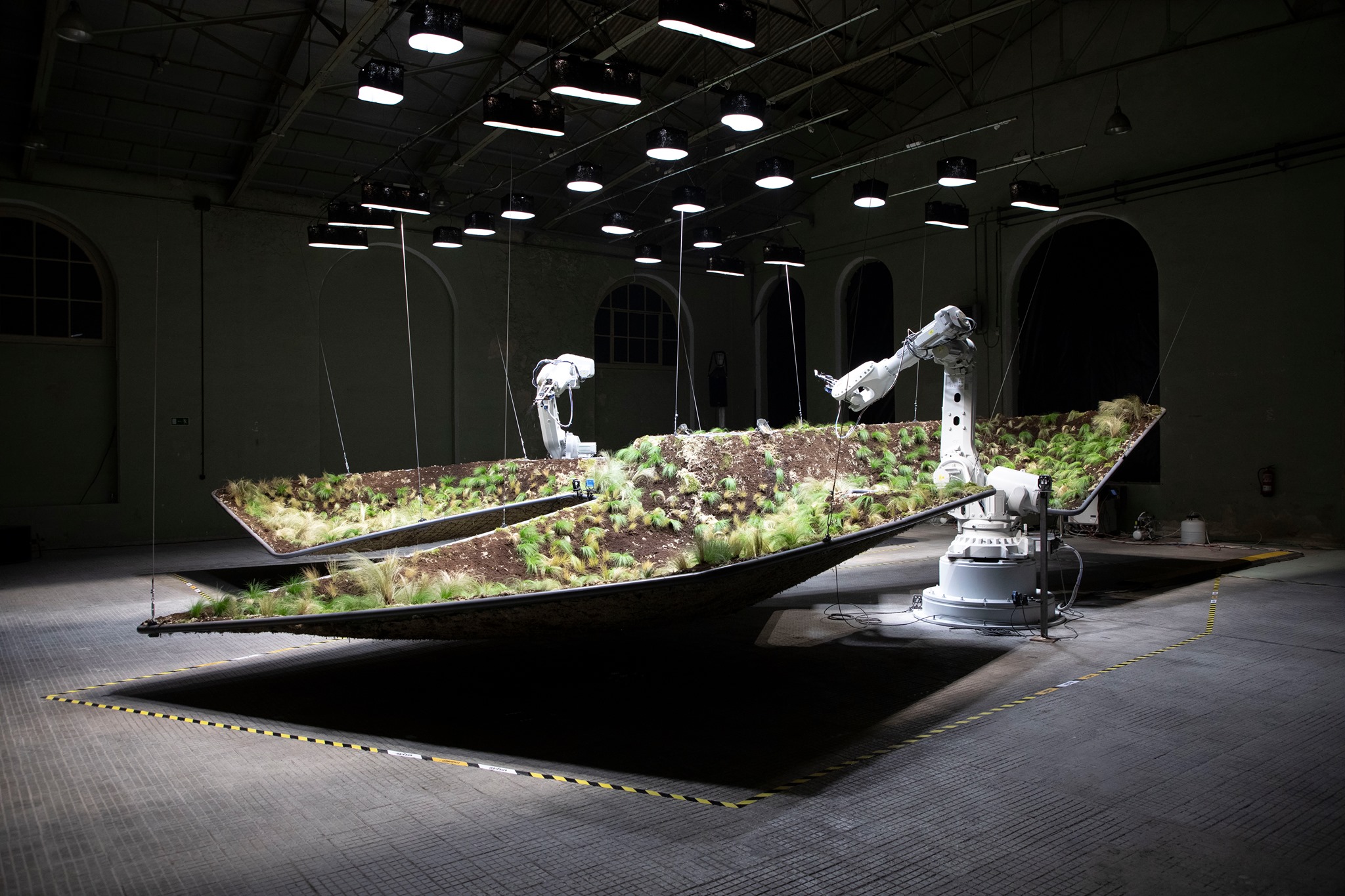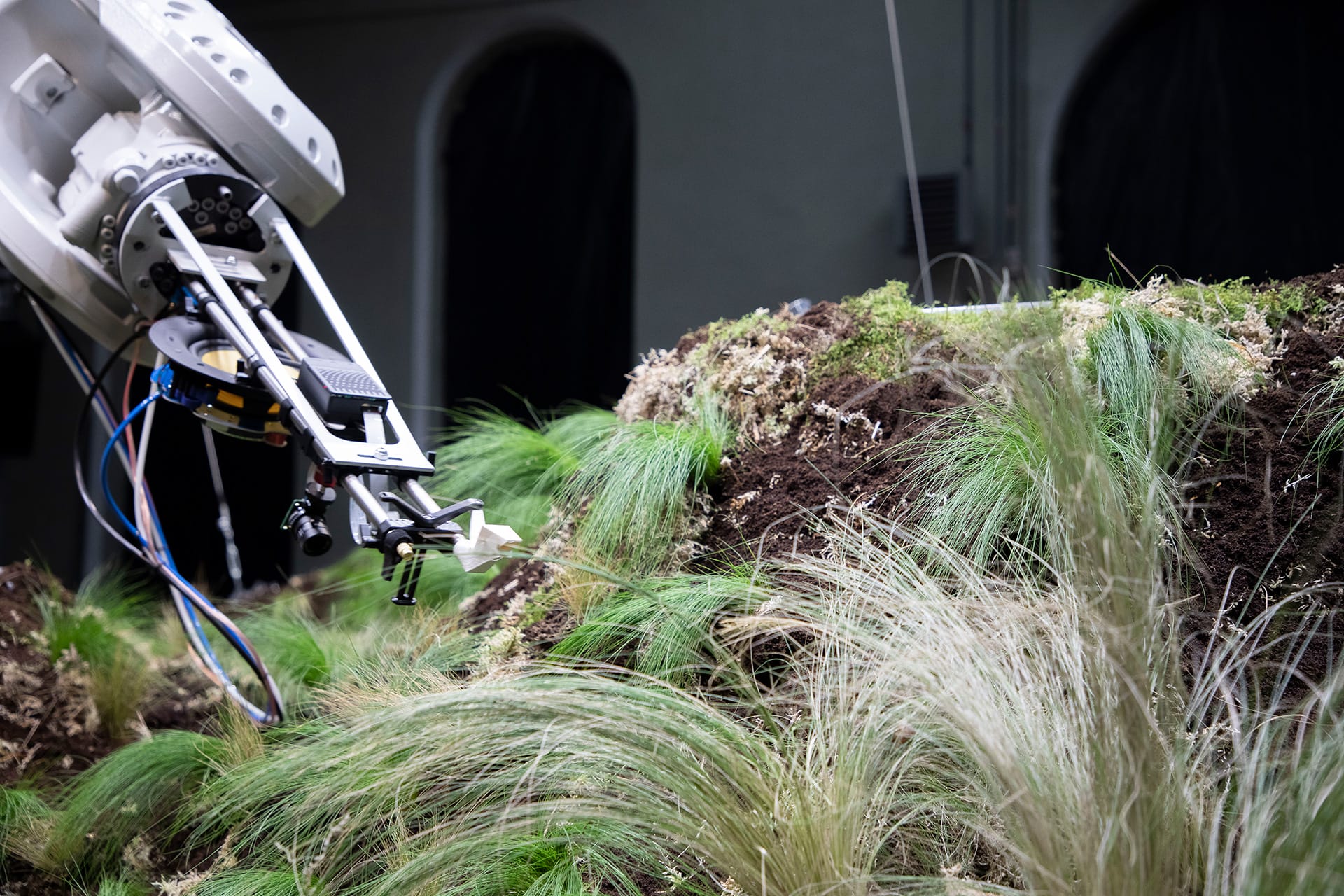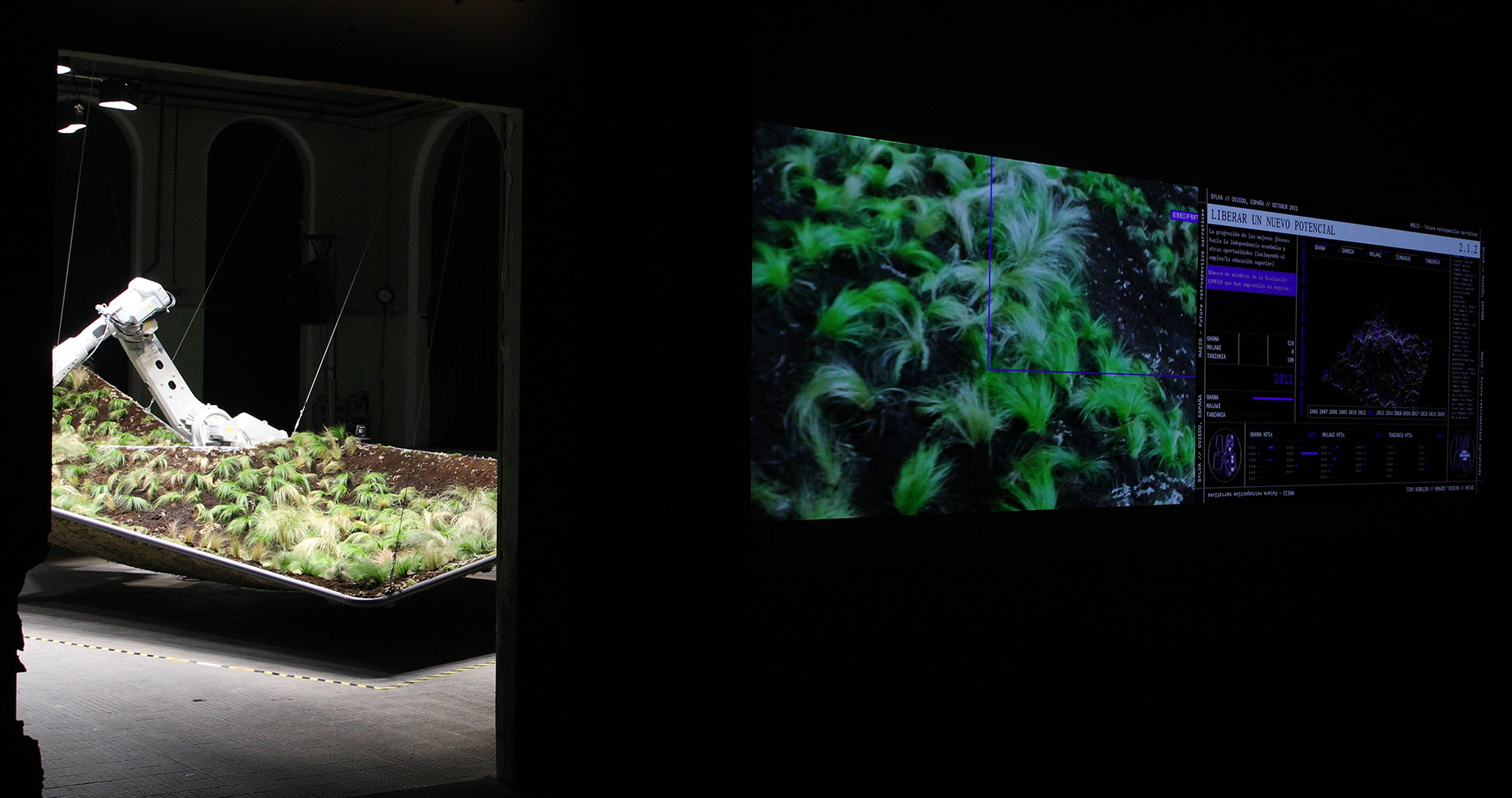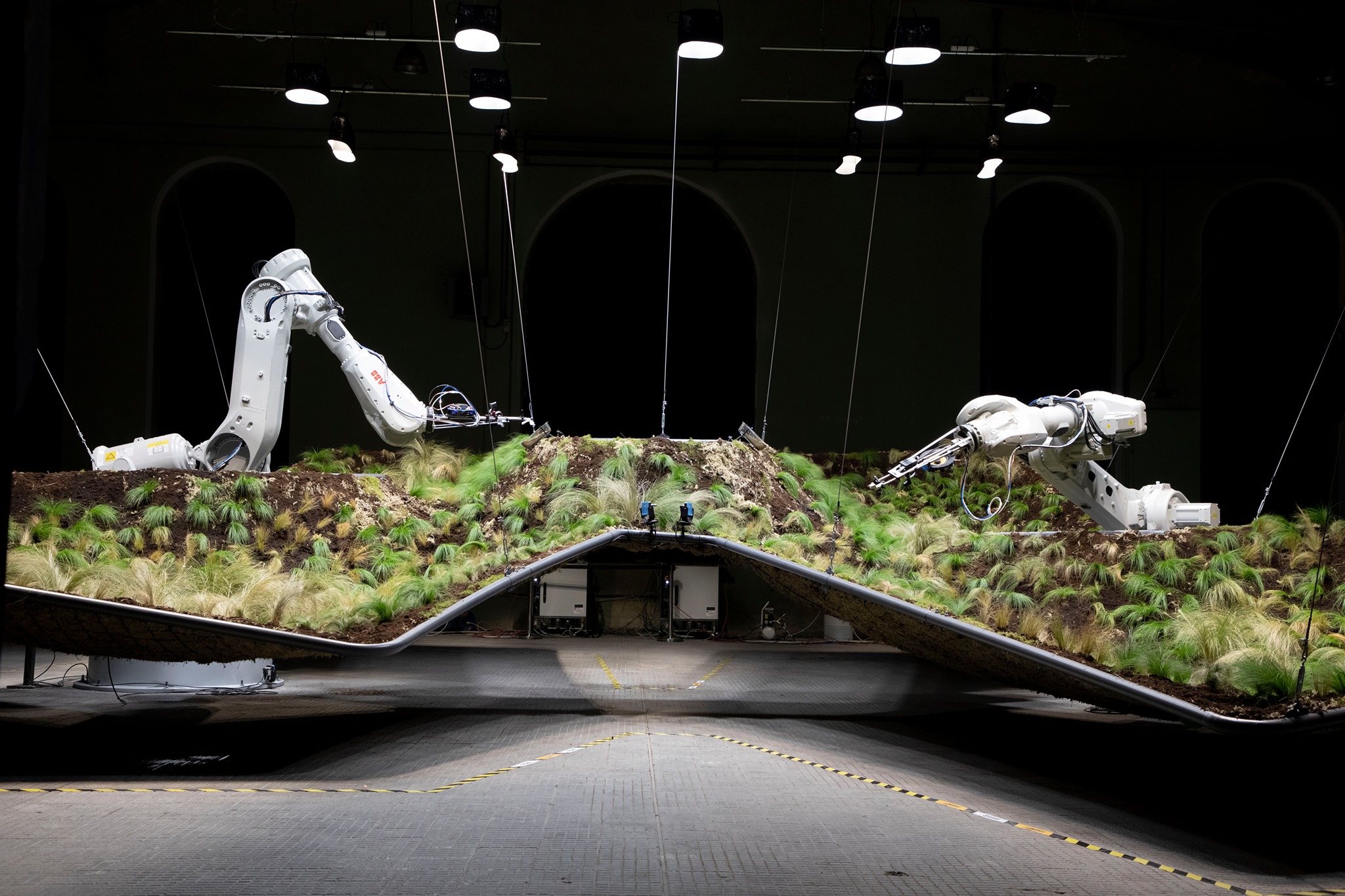Sylva represents an autonomous, immersive landscape built to honour the relationship between women, education, and technology. The constructed landscape is understood as synchronization of different parts of the ecosystem: the growth of plants, the movement of two robots, and a real-time soundscape and visualization. All these elements are influenced by the data of the 2021 Princess of Asturias Award for International Cooperation laureate CAMFED – Campaign for Female Education that shows a positive impact of girls and young women’s education in Africa. This non-governmental organization supports girls’ access to education in sub-Saharan Africa and emphasizes the crucial role of education as a catalyst for social change, breaking the cycle of poverty and creating more inclusive and prosperous societies.

The two robotic arms water, distribute seeds and monitor the garden favouring the growth of specific plant species. Sylva’s form materializes through parameters formulated using CAMFED’s Key Performance Indicator (KPI) data. The growth of the hydroponic garden is influenced by data, data prediction and real-time interactions such as seeding and dispersion of nutrients. The project follows the topicality of “Magic Queen”; an autonomous garden that is currently presented at the Venice Architecture Biennale 2021 in collaboration with ABB and is part of the Artificial Ecologies series.


